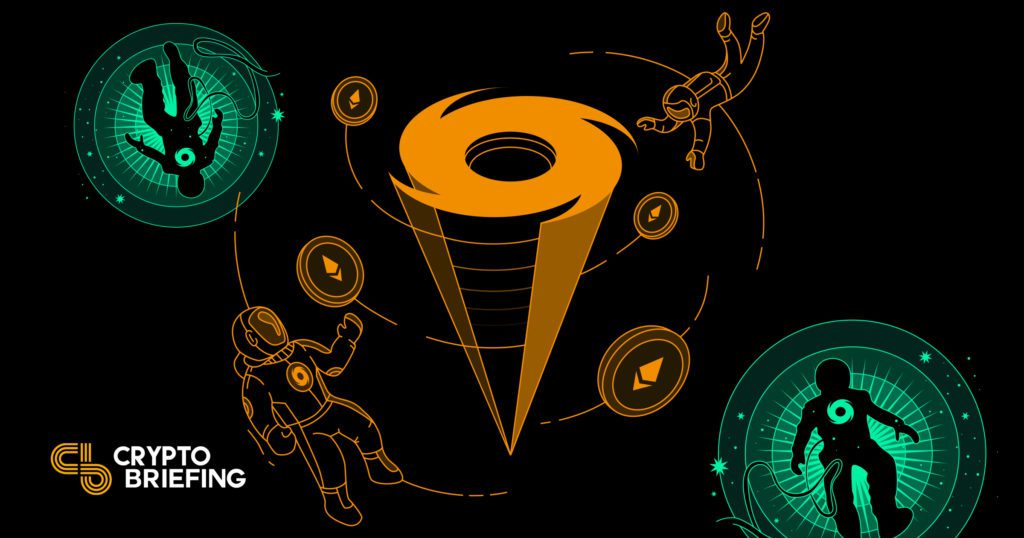Tornado Cash is the most popular and largest Ethereum mixer in the world. In principle, this is another smart contract that mixes transactions of its users in a similar way to a Bitcoin mixer. The result is greater privacy because it allows the connection between the sender and receiver to be obfuscated.
This circumstance is also often used by criminals, because it enables them to launder mostly stolen funds. This is a thorn in the side of the US and so today the US Treasury Department imposed sanctions on the service. Similar to the case of Blender.io , a number of Ethereum addresses ended up on a sanctions list.
As a result, US citizens and businesses are no longer allowed to interact with Tornado Cash. It is unclear whether the measure can be designed effectively at all.
Effects of the measure are disputed
The Treasury Department considers it proven that hackers like the Lazarus Group laundered large sums of money through Tornado Cash. The group is said to be connected to North Korea and commit various cyber crimes on its behalf. Including theft of cryptocurrencies worth millions.
Lazarus is said to have shifted around 455 million US dollars via Tornado Cash. It is not at all clear what the sanctions are intended to achieve in concrete terms. Ultimately, the mixer could be set up with new addresses that are then no longer on the list. In addition, no direct intervention is possible. Instead, they tend to sanction their own citizens when they contact the platform.
From a legal point of view, the measure may be necessary to take further action against the hackers and the services they use. In reality, however, this has no effect and even the symbolic character is lost. Tornado Cash was designed as a DAO and is not subject to any central control. This is where the service differs from bitcoin mixers, which usually have an operator who is more or less tangible. The chances are good that the measures simply fizzle out on the design of Tornado Cash.
My Top PicksHoneygain - Passive earner that pays in BTC or PayPalMandalaExchange -The Best no KYC crypto Exchange!
BetFury - Play And Earn BFG for daily Bitcoin and ETH dividends!
Pipeflare - Faucet that pays in ZCash and Matic, Games pay in DAIWomplay - Mobile dApp gaming platform that rewards in EOS and BitcoinCointiply - The #1 Crypto Earning SiteLiteCoinPay -The #1 FaucetPay earner for LitecoinLBRY/Odysee - YouTube Alternative that lets you earn Money by viewing videos!FaucetPay - The #1 Microwallet PlatformFREEBTC - The #1 FaucetPay earner for Satoshi'sFaucetCrypto - An earning/faucet site that pays out instantlyFireFaucet - An earning site that pays better for some than Cointiply
DogeFaucet - Dogecoin Faucet
xFaucet - BTC, ETH, LTC, Doge, Dash, Tron, DGB, BCH, BNB, ZEC, FEY - Claim every 5 minutes
Konstantinova - BTC, ETH, LTC, Doge, Dash, Tron, DGB, BNB, ZEC, USDT, FEY, 25 Claims Daily


Comments
Post a Comment